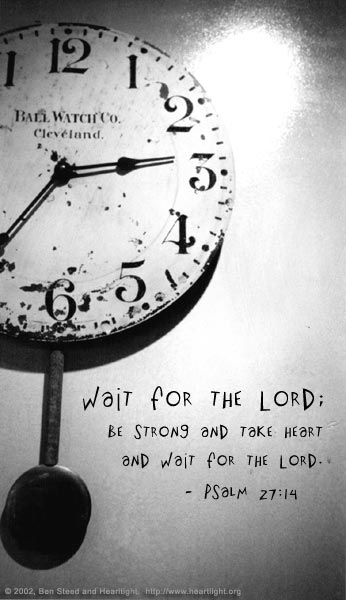Pontius Pilate
Mark 15:1
By the time Jesus began His public ministry, Emperor Tiberius had retired to a lavish villa on the island of Capri, leaving the day-to-day administration of the empire in the hands of his trusted right-hand man, Lucius Sejanus. Sejanus had earned the emperor’s trust by transforming a small regiment of the imperial bodyguard into the Praetorian Guard, a kind of secret police force that became an influential factor in Roman politics. Moreover, he had shrewdly eliminated all of his political rivals through slick maneuvering and violent intrigue. One of the rivals he had destroyed was none other than Drusus, the emperor’s own son, whom he had slowly poisoned with the help of the unfortunate man’s wife.
With Drusus dead of seemingly natural causes, Sejanus enjoyed ruling as the de facto leader of Rome and saw to it that his friend Pontius Pilate received one of the most prestigious appointments in the empire: procurator of Judea. While extremely challenging, the post offered unlimited potential for political greatness in the empire. Sejanus wanted a strong ruler to keep Judea peacefully subservient despite the Jews’ mounting discontent.
The historian Philo of Alexandria described Pilate as:
“A man of a very inflexible disposition, and very merciless as well as very obstinate.” [116]
Pilate’s inflexibility had served him well in the past, but it nearly became his undoing in Judea. Where he brought brute force, finesse was required. He failed to understand the delicate balance between autonomy and control needed to govern Judea. Soon after taking command from his headquarters in Caesarea Maritima, Pilate sent a clear message to Jerusalem, letting the people know he was in charge. Normally, the procurator’s army wintered in Caesarea, but Pilate ordered the soldiers to spend the winter in Jerusalem. Moreover, he ordered them to bear Caesar’s image on their shields and to display it in key locations throughout the city. He determined that Jerusalem should be treated like all other conquered nations. Of course, this violated the Jewish law prohibiting “graven images” (see Deut. 4:15-18).
Before long, a large delegation of temple leaders marched en masse to Caesarea in protest. The resulting standoff became a test of wills. For Pilate to remove the images would be a humiliating show of weakness, yet keeping the peace was his sole responsibility. The Jewish leaders refused to go home until the images were removed, and this caused Pilate to respond with force. The Jewish historian Josephus described the procurator’s means of breaking the stalemate:
On the sixth day [of the protest] he ordered his soldiers to have their weapons privately, while he came and sat upon his judgment-seat, which seat was so prepared in the open place of the city, that it concealed the army that lay ready to oppress them: and when the Jews petitioned him again, he gave a signal to the soldiers to encompass them round, and threatened that their punishment should be no less than immediate death, unless they would leave off disturbing him, and go their ways home. But they threw themselves upon the ground, and laid their necks bare, and said they would take their death very willingly, rather than the wisdom of their laws should be transgressed; upon which Pilate was deeply affected with their firm resolution to keep their laws inviolable, and presently commanded the images to be carried back from Jerusalem to Caesarea. [117]
Due to constant conflict and discontent, Jewish leaders eventually petitioned Tiberius for Pilate’s removal. By that time, Tiberius had discovered that Sejanus had poisoned his son and ordered him executed. As the citizens of Rome dragged the mutilated body of Sejanus around the streets, Pilate suddenly found himself without a friend in the world.
Pilate and Jesus
The Jewish leaders knew the best way to convince Pilate to execute Jesus was to label Him a “Christ” or “Messiah.” Every few years, a rebel would emerge, claim to be the Messiah, gather a sizable following, and lead an insurrection. Most of these false messiahs discredited themselves or fell in battle against local troops, so they never amounted to much. However, if the Sanhedrin could make a case for Jesus’ unusual popularity, the procurator might not risk His influence growing any further.
Pilate pursued a line of questioning that would determine whether Jesus claimed to be the Messiah, as the council alleged. He first asked if Jesus considered Himself “the King of the Jews” (Mark 15:2). Pilate’s question in Greek emphasizes the word “You.” If Jesus answered in the affirmative, He could be convicted of sedition. Jesus gave a cryptic response, emphasizing “you” as Pilate had done. A paraphrase might be: “If you say so.”
Some have wondered why Jesus didn’t simply say, “Yes. I am the King of the Jews.” He didn’t for several reasons:
- To say yes would have put Him on the same level as the previous false messiahs who had stood before Pilate.
- To say yes would have played into Pilate’s preexisting notions and prejudices instead of leading him closer to the truth.
- Jesus is a King in every sense of the term, but His kingship doesn’t rule by the strength of armies; His kingship rests on the power of truth.
- This King doesn’t rise to power through insurrection; this King washes the feet of His subjects.
- To say yes would have diverted attention away from the crucial question:
- “Who do you say that I am?” (cf. Mark 8:29).
- Salvation for each individual—Pilate included—depends upon the answer to that question.
When Jesus turned the question back to Pilate, His accusers sensed their opportunity slipping away and began piling on the accusations. Pilate appeared to have ignored the animated council to focus on the composed defendant. By this time, Jesus had determined to say nothing. Mark’s double negative in the Greek (ouketi oudeis [3765 + 3762]) emphasizes the Lord’s resolve. He understood that no amount of talking would change the mind of someone willfully resistant to the truth. He would endure His ordeal in silence (cf. Isa. 53:7).
— 15:6-11 —
The procurator now found himself in a difficult dilemma. He had emerged the loser in earlier political scrapes with the Jewish leaders. This, combined with unfavorable circumstances in Rome—his chief benefactor had been executed for treason—left him vulnerable. He couldn’t afford another complaint against him, yet he could see clearly that Jesus was innocent. To find a way out of the jam, he decided to use a Passover tradition against the Sanhedrin.
Pilate’s predecessors had typically released one man from prison during the Passover festival as a goodwill gesture. Normally, they chose someone accused of a relatively minor offense. Pilate thought he might dissuade the crowd from demanding the death of Jesus by offering to release a notorious criminal—quite likely a member of the so-called Sicarii. His was called Barabbas, which is a nonsensical name. It means “son of a father.” He had probably adopted this “John Doe” name to remain anonymous and to protect his family.
Barabbas awaited the worst punishment Rome had to offer: crucifixion, a horrific kind of death reserved for the very worst criminals. The Greek term rendered “insurrectionist” (15:7) describes someone we would call a terrorist. Surely the Jewish leaders wouldn’t anger Rome by releasing a genuine threat to the empire. Surely they wouldn’t discredit themselves by withholding justice from a vicious murderer.
Either Pilate underestimated the council’s hatred for Jesus, or they simply called his bluff.
— 15:12-14 —
When his plan backfired, Pilate found that his political situation had only gotten worse. Now he had to choose between two unattractive options. If he released Jesus, he risked a riot among the Jews, something it was his duty to avoid at all costs. What is more, another complaint would be lodged against him in Rome and his career would be ended. If, on the other hand, he released Barabbas, he would be guilty of releasing a man Rome very much wanted dead.
Pilate appealed to the crowd twice, each time emphasizing the title “King of the Jews” (15:9, 12). When he pressed the crowd to confirm the charge against Jesus, insinuating that it wasn’t compelling enough to warrant crucifixion, they simply shouted him down: “Crucify Him!” (15:13-14). Against all reason—“Why, what evil has He done?”—the crowd became more frenzied in their bloodlust.
— 15:15 —
With emotions running dangerously high, Pilate satisfied the crowd by releasing Barabbas and laying the sentence of crucifixion on Jesus in his stead.
Pilate proceeded to have Jesus scourged. According to Luke’s Gospel, Pilate did this in an attempt to punish Jesus and then release him, hoping that this would satisfy the crowd (Luke 23:16). Some called this brutal form of torture “the halfway death.” It served two purposes in the Roman system. First, it was a fearsome punishment that carried a significant risk of death, either by shock during the beating or from infection during recovery. Second, as a precursor to crucifixion, scourging shortened the victim’s time on the cross depending upon which whip the lictor chose. This expert in the grim art of torture knew exactly how to beat a man within an inch of his life.
Citation
Swindoll, Charles R. Insights on Mark (Swindoll’s Living Insights New Testament Commentary Book 2) (pp. 378-380).


